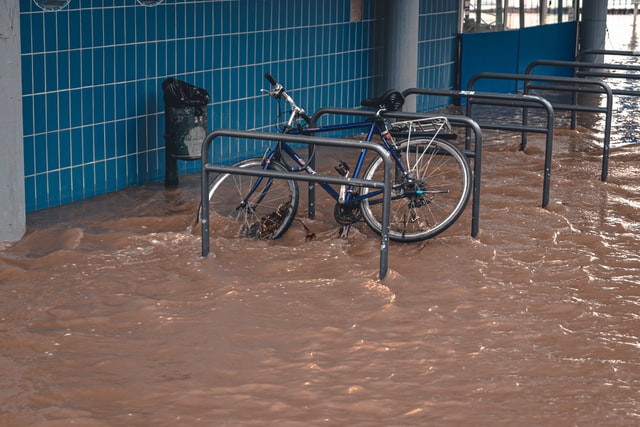
My heart goes out to everyone who is affected by the floods in Germany, Belgium and the Netherlands. Over 150 deaths and many people missing. So much new disruption and loss on top of the pandemic.
From a trauma perspective, the key priorities are common sense ones: safety first, good communication, connecting people with loved ones, and reiterating that individuals and the community – with adequate support – can handle this.
Authorities and the community are on it, and both professionals and volunteers have been out in force to reduce the physical impact of the water.
As always, I’m thinking about how this experience may be for the children and young people in the regions that are affected. Many children will have lost a loved one or had scary evacuations. A few will find it an exciting adventure. Most will have to deal with a big muddy mess over the next few weeks.
Every child will have their own story. There will be differences in what happened and is happening, how their parents and other adults around them react, and in how they interpret it all.
What I’m concerned about is the cumulative impact of the pandemic and this disaster. Many children have already experienced major disruptions to their daily life, friendships and routines due to lockdowns, school closures, parents’ job losses and illness in their direct environment.
Still, even in these extra difficult circumstances, a large proportion of children will be resilient. They will find their way through this, bond with friends over it, chat with their parents when necessary, express themselves in a way that’s helpful to them, and continue growing and developing.
Nevertheless, it will be important to keep a close eye on any children and young people (and of course this applies to adults too) who are struggling.
Struggling is a normal response to a situation like this; it’s to be expected. What I mean is that I’m thinking of those who are struggling in, say, 2-3 months from now: children who find it difficult to concentrate when they are back at school in Sept/Oct. Adolescents who continue to act out and aren’t thriving. Or youngsters who withdraw from friends and don’t seem to love their hobbies anymore.
It will be important to actively monitor how children are doing and, if there are concerns, to come up with a plan for support. This can involve individual mental health care, extra support for parents of very young children, peer-support for adolescents, a community-oriented program through schools, etcetera. It will depend on what the difficulties are as well as the support opportunities available.
For those of us in Australia, we might think that this is all far away from us. It isn’t.
There are two reasons why we should see this as ‘close to home’.
First, we should be thinking of the cumulative impact of traumatic events and adversity too. Children in NSW and VIC are again in lockdown at the moment, after a tough year and a half already.** A sizeable number of them will be exposed to new trauma or adversity. Think of children exposed to family violence. Children whose family members are ill with COVID-19. Children whose parents are in insecure employment or trying to survive a spade of lockdowns with their small business. Children and young people are sensitive to all of this. And while most are resilient, we cannot simply assume that they will be alright.
Second, the floods in Western Europe are thought to be the type of extreme weather events connected to climate change. Not that we needed another reminder of the urgency with which we need to address the impact that – especially high-income – societies are having on the ecosystem. This concerns Australian children and young people just as it does children anywhere else in the world. I’m talking in terrible clichés here but I’m not sure how else to put it.
As a community, we need to keep monitoring how children and young people are doing and actively planning how we support them through today and tomorrow. And that will involve looking after each other and the planet.
—-
—-
* I want to acknowledge that I’m writing about this disaster because it feels close to home; it is physically close to where I grew up. There are major disasters and very severe outbreaks of the pandemic globally that I haven’t written about but where, of course, many children and young people are affected and deserve attention and support.
** In line with the note above, children in other parts of the world have been hit much harder by COVID than those in Australia. Nevertheless, it has been a tough time for many young people in the country.

